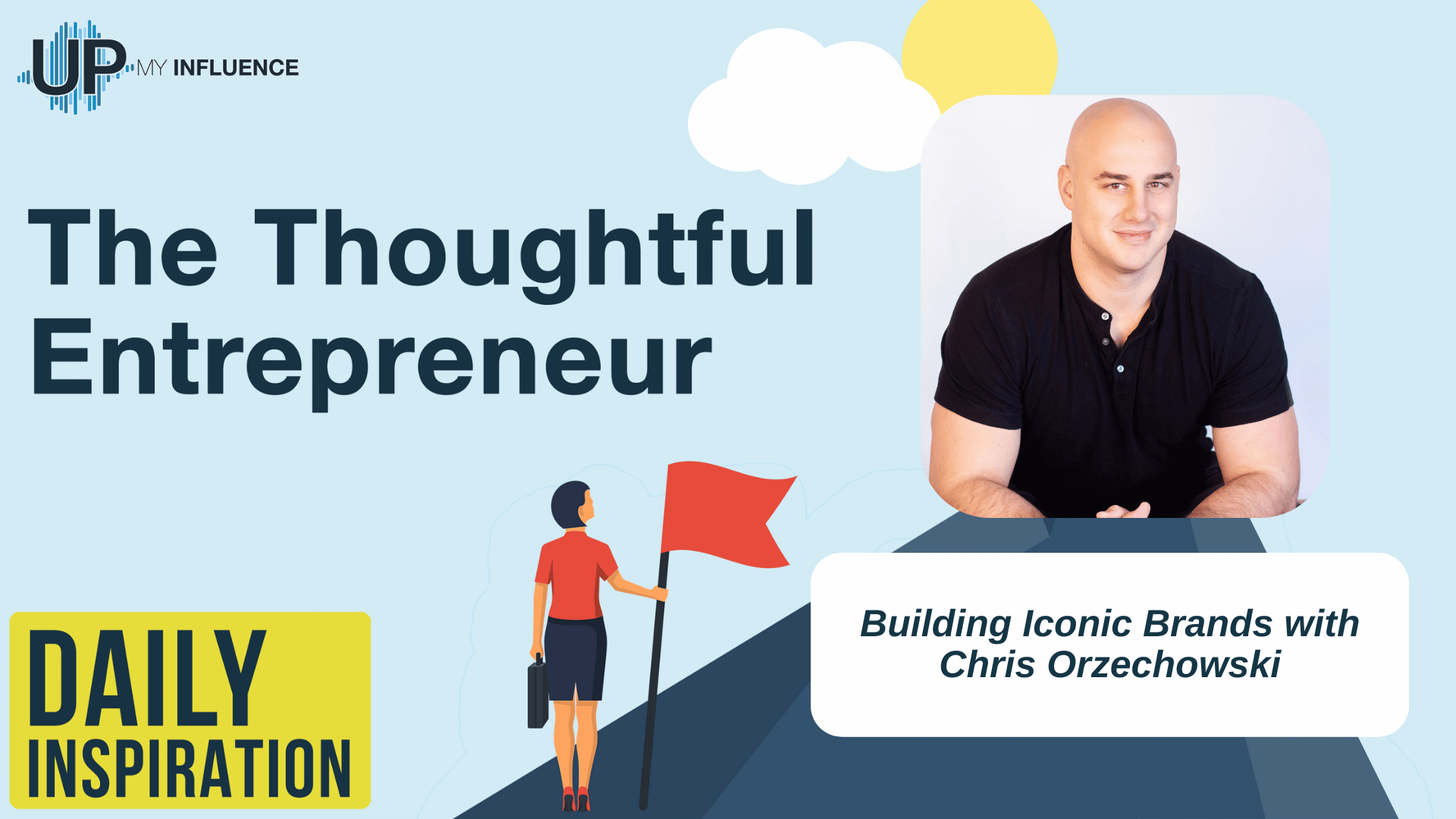THE THOUGHTFUL ENTREPRENEUR PODCAST
In this episode of the Thoughtful Entrepreneur, your host Josh Elledge speaks to the Copywriter & CMO of 100 Year Brand, Chris Orzechowski.

Chris is on a mission to create enduring American brands in the physical product space, and he brought a treasure trove of strategies to the table.
Chris' goal is ambitious yet inspiring: to build the next generation of 100-plus year American brands. As a fractional CMO, Chris works hands-on with brands to scale their marketing efforts. He focuses on expanding their marketing budget, channels, assets, and infrastructure, all to drive substantial revenue and growth.
One of the core principles Chris emphasizes is transforming a brand into a lifestyle. This is about creating a culture and community around your brand. By establishing solid retention systems, brands can keep customers engaged for the long haul, encouraging repeat purchases and fostering loyalty.
Chris delves into the critical role of database management, mining, and segmentation. Understanding your customer base and identifying its opportunities are essential for revenue growth. By analyzing customer data, brands can tailor their marketing strategies to target the right segments with the right messages.
Regarding marketing, Chris concentrates on key areas such as advertising, customer acquisition, email marketing, SMS, direct mail, and influencer strategy. He advocates for a hyper-focused approach, especially with influencer outreach.
Instead of casting a wide net, Chris suggests building strong relationships with a select few influencers who truly resonate with your brand's values and products.
Key Points from the Episode:
- Mission to build 100+ year American brands in the physical product space
- Fractional CMO's role in multiplying and growing marketing budget, channels, assets, and infrastructure
- Importance of turning a brand into a lifestyle and building solid retention systems
- Database management, mining, and segmentation for revenue and growth opportunities
- Key areas of marketing focus: advertising, customer acquisition, email marketing, SMS, direct mail, and influencer strategy
- Hyper-focusing on hand-selected influencers aligned with brand values
- Providing exceptional services to maintain and grow the existing customer base
- Email marketing and delivering consistent and valuable content to subscribers
About Chris Orzechowski:
Chris Orzechowski's trajectory from Division 1 wrestler at Rutgers University to one of the world's highest-paid copywriters is truly extraordinary. Despite initially struggling in a freshman writing course, Chris's journey led him through diverse roles, from teacher to bartender and bouncer.
With over a decade in marketing, he stands as a sought-after expert in copywriting, marketing, and brand growth. Chris has collaborated with 200+ clients, trained 5,000 students, and contributed over $120 million in sales.
Notable brands like Carnivore Snax and high-profile figures like Ryan Serhant have benefited from his expertise. Renowned for advocating plain text emails in e-commerce marketing, Chris is challenging industry norms.
As a fractional Chief Marketing Officer, founder of the 100 Year Brand, and author of “The Moat,” he's dedicated to shaping the next generation of enduring American brands. Featured in Forbes and Business Insider, Chris Orzechowski is a transformative force in the marketing landscape.
About 100 Year Brand:
In the quest to build a resilient and enduring brand, Chris Orzechowski introduces the concept of the 100-Year Brand. Rejecting the notion of waiting for a perfect time, he emphasizes the possibility of success in any economic climate.
The key is to establish a brand that not only weathers storms but consistently generates wealth irrespective of external challenges. Drawing inspiration from iconic brands born in challenging economies, Chris encourages aspiring entrepreneurs to aim for generational wealth and long-lasting impact.
The 100 Year Brand is Chris's initiative to guide individuals in transforming their brands into timeless icons, ensuring financial security for a lifetime and leaving a lasting legacy.
To embark on this journey, entrepreneurs can join The Foundry, an e-commerce incubator, or opt for consulting services to address marketing challenges and identify growth opportunities. Chris Orzechowski's mission is to help brands become enduring, providing sustained prosperity while making a lasting impression.
Tweetable Moments:
02:55 – “The best brands that last the longest tend to retain customers for a very long time and get repeat purchases over and over again.”
03:56 – “When you look at a mountain, there might be gold deposits all over; you just need to find the gold within the mountain. Your database is the same way.”
11:59 – “If someone's in pain and they have a problem and you have the solutions, there's no amount of content you could send them that would be too much content.”
Apply to be a Guest on The Thoughtful Entrepreneur:
https://go.upmyinfluence.com/podcast-guest
Links Mentioned in this Episode:
Want to learn more? Check out 100 Year Brand website at
https://100yearbrand.co/#brands
Check out Chris Orzechowski on LinkedIn at
https://www.linkedin.com/in/chris-orzechowski-b5531823a/
Check out Chris Orzechowski on Instagram at
https://www.instagram.com/chrisorzechowski/
Check out Chris Orzechowski on Twitter at
Check out Chris Orzechowski on Facebook at
https://web.facebook.com/bralston11
Check out Chris Orzechowski’s new book, The Moat: How to Build a Durable, Profitable E-Commerce Brand that can Last Forever at
More from UpMyInfluence:
We are actively booking guests for our The Thoughtful Entrepreneur. Schedule HERE.
Are you a 6-figure consultant? I’ve got high-level intros for you. Learn more here.
What is your #1 Lead Generation BLOCKER? Take my free quiz here.
Want to learn more about all the podcasts managed by UpMyInfluence? Opt in here.

